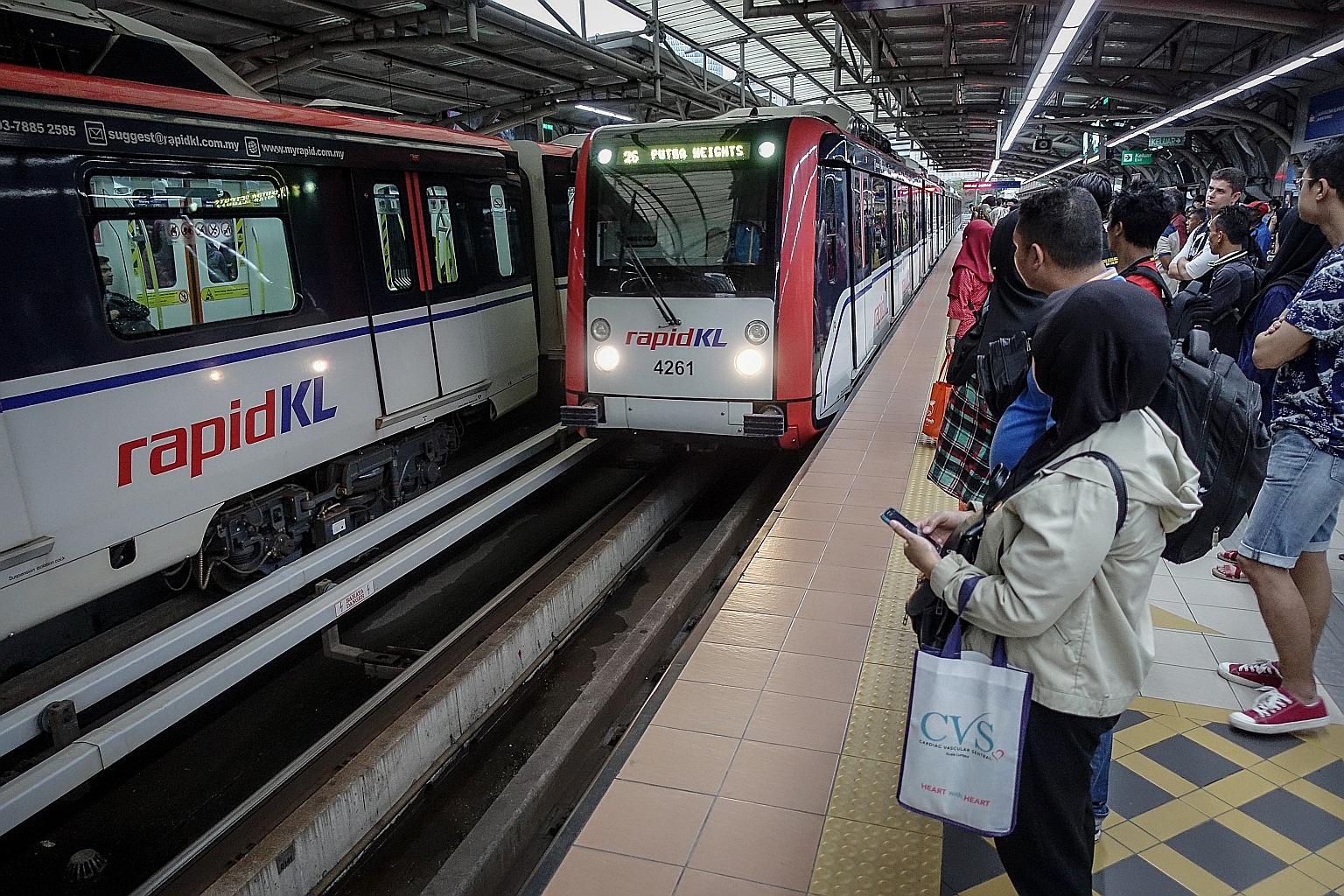HSR case highlights rail issues in Malaysian govt
At least 2 other train projects have faced govt intervention since PN took office
Sign up now: Get insights on the biggest stories in Malaysia

An LRT station in the Klang Valley. National public transport firm Prasarana is facing scrutiny over its decision to withhold up to RM1 billion owed to a group tasked with building the Light Rail Transit 3.
PHOTO: BERNAMA
Shannon Teoh Malaysia Bureau Chief In Kuala Lumpur, Shannon Teoh
Follow topic:
Malaysia's cancellation of the Kuala Lumpur-Singapore High-Speed Rail (HSR) project is the latest in a series of controversies involving train projects that has cast a light on the governance of these billion-dollar deals.
Since the Perikatan Nasional (PN) government came to power 10 months ago, at least two other tracks which traverse Kuala Lumpur's greater metropolitan area have faced government intervention over the selection of contractors. The RM4.4 billion (S$1.45 billion) Klang Valley Double Tracking Phase 2 (KVDT2) deal was terminated abruptly last August after Transport Minister Wee Ka Siong said the award should be retendered, leading to a civil suit by the appointed firm, Dhaya Maju LTAT.
Meanwhile, Umno MP Tajuddin Abdul Rahman's chairmanship of Prasarana has also invited scrutiny, especially after the national public transport firm's decision to withhold up to RM1 billion owed to a consortium tasked with building the Light Rail Transit 3 (LRT3).
Datuk Seri Tajuddin, the election director of Malaysia's largest political party, cited Prasarana's liquidity problems and the lack of bumiputera subcontractors selected by turnkey developer MRCB-George Kent (MRCBGK) for withholding the sum in the RM17 billion project.
These government interventions have led to calls from across the political divide as well as civil society for more transparency, with some implying cronyism was at play.
Former finance minister Lim Guan Eng has called for the Malaysian Anti-Corruption Commission to act "professionally and independently by investigating the cancellation of the KL-Singapore HSR due to the Malaysian government's refusal to abide by the international tender process".
The secretary-general of opposition Democratic Action Party noted that the anti-graft agency had also opened a probe into Prasarana following revelations that it could pay out RM80 million in compensation to a developer partly owned by Mr Tajuddin's family, and the RM1 billion owed in the LRT3 construction.
Official sources told The Straits Times that Mr Tajuddin's assertion that Prasarana did not have the cash to pay MRCBGK was puzzling, as the Finance Ministry injects an annual grant of more than RM2 billion into the company.
The Pasir Salak MP had insisted the firm was left with RM844 million after allocating RM600 million to service loans and capital expenditure of RM350 million.
"The amount outstanding to MRCBGK is since July, so Prasarana could have asked for more funds. The government has never rejected requests for an injection in the past because it has to keep public transport running," said a senior executive on condition of anonymity.
MRCBGK also disputed Mr Tajuddin's claim that the firm has not met a bumiputera quota for LRT3 subcontractors, saying the 40 per cent of vendors selected from the community - made up of the politically crucial Malay majority and other native minorities - exceeded the 30 per cent minimum.
Separately, the government has had to settle out of court with Dhaya Maju LTAT after cancelling their KVDT2 agreement, citing how the deal was directly negotiated in 2019 by the Pakatan Harapan administration. The firm's chief executive Razeek Hussain Maricar had claimed in an affidavit that Transport Minister Wee asked it to subcontract the entire project to a "China company".
In an essay last weekend, Malaysia and Asean's former environment department chief Raman Letchumanan decried the "string of projects that were terminated, redesigned and retendered" as "klepto-economics".

